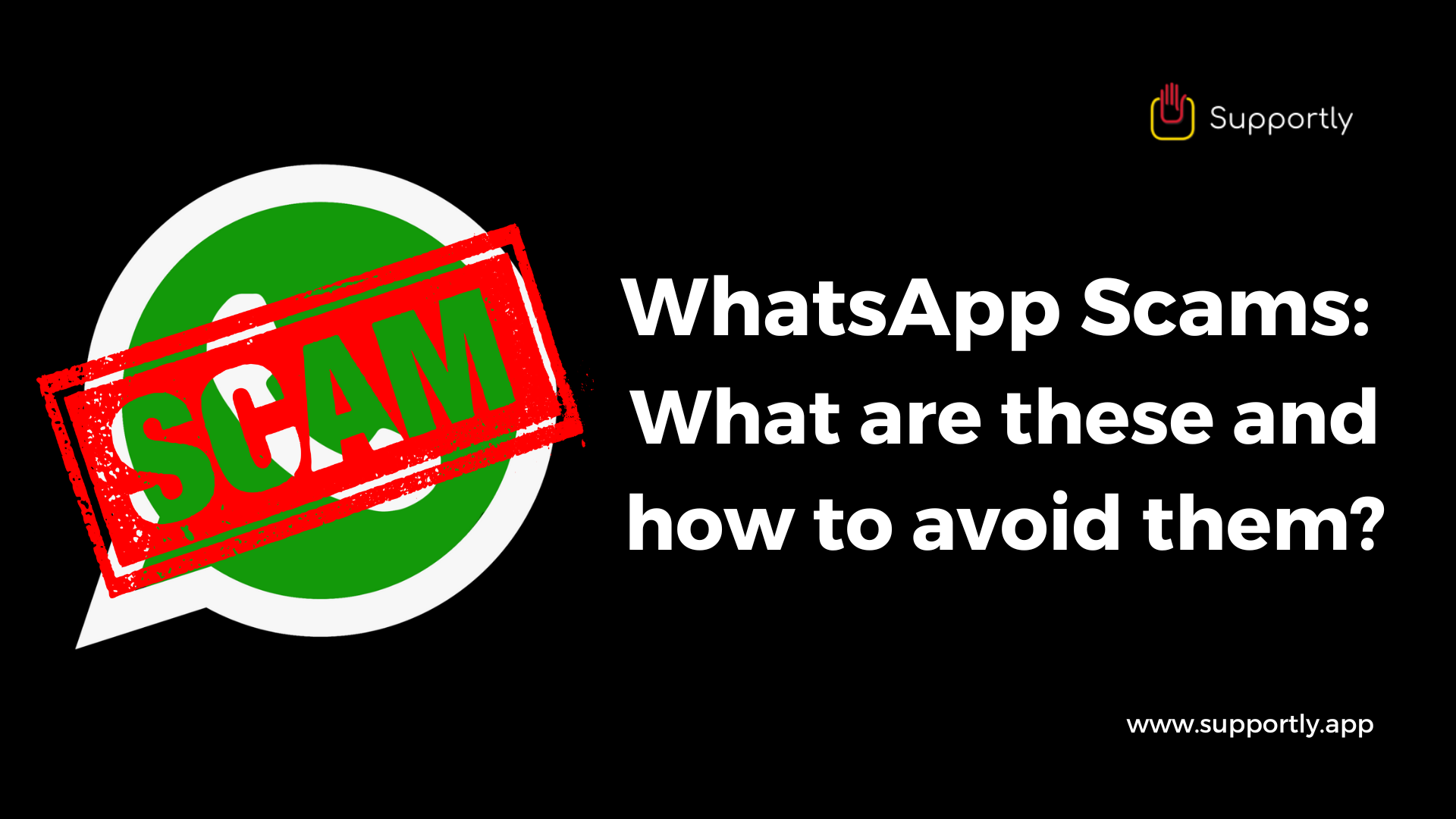Forgot Windows Login Password? Here’s How to Reset It Easily

To Read more about WhatsApp scams, continue reading this blog article.

Have you ever gotten a special WhatsApp message or link from a buddy requesting money? Have you ever attempted to open that link or contact your friend?
Wait! It is a snare! Perhaps it's a SCAM!
Around 100 billion messages are transmitted every day on WhatsApp, which has 2 billion members globally. Scammers are waiting to peek their heads in among such texts. While Whatsapp is the most practical method of transmitting messages, it is also an easy way for con artists to disseminate them in many ways in the hopes that unsuspecting individuals will somehow fall for a hoax.
The prevalence of WhatsApp crime is growing as new platforms become accessible worldwide, with each victim bearing a heavy financial burden of several thousand dollars. This essay will make you aware of actual WhatsApp scams. This post will show you how to spot WhatsApp scams and how to avoid falling victim to con artists.
Numerous WhatsApp scams exist, and you can be the next victim. Therefore, take a look at the following list of the most typical WhatsApp scams:
One of the most popular con games involves stealing a user's WhatsApp account while they are unaware in order to conduct fraud. It shows how online fraudsters get a user's phone number.
They install WhatsApp on their device, then get in touch with the victim while posing as their friend. They ask for the victim's account's verification number in the interim. To obtain the verification code and gain access to the victim's account, they SMS the victim and claim that the code was provided accidentally.
Cybercriminals frequently access the victim's voicemail and take control of their WhatsApp account. Whatsapp provides you a six-digit code for account verification when you first install the programme. Installing WhatsApp on one's own devices allows a con artist or fraudster to gain account information.
Due to the fact that they include contact names, display photos, and many other details, it is frequently simple for the criminal to re-fraud contacts. They choose the option that states they have never gotten a verification code by phone when it comes to the Whatsapp sending code through text.
The call goes to voicemail because the WhatsApp scammers are aware that the victim would also receive a call from WhatsApp at the same time. For the hackers, the imprisoned person doesn't listen to the voicemail because it's still in their mailbox.
In impersonation scams, the con artist poses as the victim's friend, relative, or acquaintance. The con artist calls the user from an unknown number and mentions that the profile photo could look familiar before asking for money right away because of an emergency.
The fraudster may link to events that the victim has shared on social media platforms like Facebook or use images of a buddy they have discovered on those accounts.
Although there aren't any unofficial WhatsApp versions accessible right now on the iOS App Store or the Android Play Store, there have been accusations of spyware being concealed in previously downloaded apps. When a user downloaded the infected programme, WhatsApp messages spread and began giving other users links to the download page, which helped spread the malware.
External links, which enable mass distribution of links that take people to the browser to complete out a survey offering a freebie, are another straightforward scam technique used by con artists. The victim fills out the survey and submits private data, including name, address, bank information, and email address. The WhatsApp scammer may later provide you with these details so you can try to steal something or sell it to someone else.
One can detect a WhatsApp Scam in a variety of ways. If you have some guidance, you can determine who they are and the next steps you should take if you receive such messages.
It should come as no surprise to many WhatsApp users that you can forward and receive messages from one person to another.
Users might not be as aware of WhatsApp's unique signal for often forwarded messages, though. Users will notice a double arrow instead of the single arrow that typically indicates a forwarded message when a message is forwarded five times.
Users will also notice a little notice informing them that a particular communication has been forwarded numerous times in their inbox.
It should be noted that if a message is forwarded more than five times, it is almost certainly spam. Fake news, malicious videos, or a boring meme are going around.
A major portion of the WhatsApp scam exists solely to persuade you to open the message's link. It will attempt to obtain your information, login credentials, banking information, and any other valuable data for the dark web when you click the link on your side.
The contacts you have on WhatsApp are simple to message. It implies that spammers can use site crawlers to get contact information, such as by purchasing a list of live phone numbers from the dark web. Your phone number can be used to hack other services, and they can then use that information to send you unwanted messages.
You probably don't have such senders in your address book, so when they arrive in your inbox, they will appear as an unknown number.
It's true that every now and then you'll get a message from a strange number that turns out to be your pal with a new number. However, they will almost always be spam!
No application or service that we are aware of currently supports two-factor authentication with WhatsApp. Due to the fact that no 2FA messages will ever reach your WhatsApp, setting up 2FA on all of your accounts is the best method to assure security, even if someone has managed to intercept your login credentials.
It would be advisable to use 2FA apps like Yubikey or Google Authenticator. Nevertheless, they are less inclined to do so via a direct communication. Don't be concerned if you receive these messages on WhatsApp but haven't tried signing in. The fact that the communication is spam and you can ignore and block it does not indicate that someone is attempting to spam you.
The basic trick used in spam mailings to deceive you is frequently used. You should be aware of the following five types of typical exact wordings in messages. A spelling error Grammatical Errors, You will be prompted to submit personal information such your name, birth date, bank account number, credit card number, or password or to click on a link to access new services with the link, I want to send you a message.
Make the assertion that using WhatsApp requires a certain sum of money.
It is beneficial to allow yourself to become aware of the many WhatsApp types and be able to identify them. However, it is better to avoid those frauds completely.
1. If you receive a message from an unknown sender, such as PayPal, long-press the link to reveal the URL and check to verify if the web address corresponds to PayPal's official website.
2. Messages for money frequently come from unknown callers. Before acting, it is advised that you confirm with your pals via another form of contact first.
3. Try getting in touch with you on the phone from an unknown number; if no one picks up, text your pal right away to check in.
4. To put up a wall between you and scammers, you can add a secure pin code to your voicemail service. They are unable to get the WhatsApp verification code thanks to the code.
5. Once WhatsApp 2-step verification is activated, whenever someone tries to log in from a different smartphone, the app will give you a verification code to the default device.
6. If you get a communication like this, carefully examine the wording and consider whether the unknown contact seems familiar or whether the grammar or spelling differs from what you would anticipate.
7. Reconsider the message's validity if someone contacts you on behalf of a bank or mobile service provider and demands an immediate payment.
I hope you found this article helpful; if you need assistance with a any tech support issue, call our customer service line at (+1) 855-748-0653 or visit our reputable website at https://www.supportly.app
Call Now : (+1) 855-748-0653
Live Chat or Call now: Click Here
Download App for Android: Click Here
Download App for iOS: Click Here